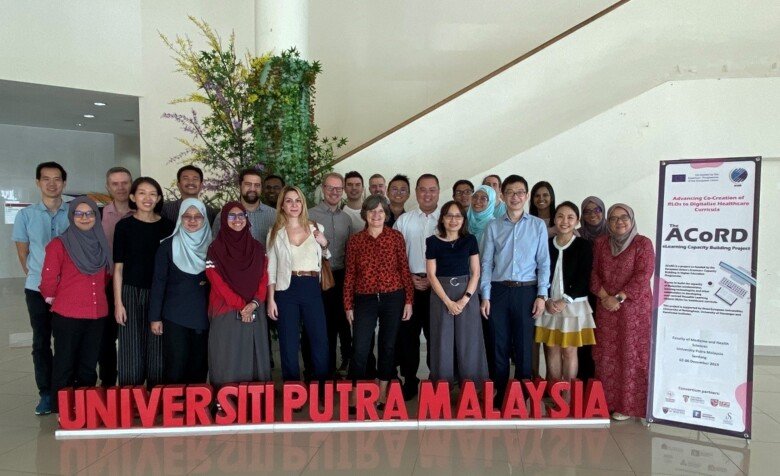Capacity building projects within Erasmus+
Researchers from Karolinska Institutet participate in capacity building projects fincanced by Erasmus+

ACoRD
ACoRD stands for Advancing Co-creation of RLOs (Reusable Learning Objects) to Digitise Healthcare Curriculum. It is coordinated by the University of Nottingham, UK.
ACoRD aims to introduce innovative digital pedagogy methods that will benefit healthcare and biomedical science students in the Malaysian universities, by sharing existing expertise and training academic staff and technologists about how to develop high quality, peer reviewed multimedia digital tools and resources and integrate them into existing traditional curricula.
AcoRD started in November 2018 and will run for three years. Sustainability is expected through the curricula integration.
''I have been enjoying every aspect of this project. Following up with the Malaysian partners in our online and face to face meetings, being able to see their progress step by step, observe how they adapted the methods and tools we shared, but also the social aspects, the friendly environment and the high motivation that everyone in the project has. I am delighted to be part of the project. We used to meet online once per month and have physical meetings twice a year. Our team consisted of a lot of members and it is sometimes hard to communicate online. We used a discussion forum to communicate the project developments but even in this case, the distance to bridge can be a challenge", says Natalia Stathakarou, project manager Department of Learning, Informatics, Management and Ethics.
Partner universities
Three universities from Malaysia – University of Malaya (UM), Universiti Putra Malaysia (UPM) and Taylor's University (TU) – from Norway – University of Stavanger (UiS) and Karolinska Institutet (MINT team in HIC/LIME).
Klas Karlgren
Prinicipal Investigator ACoRDTAME
TAME stands for Training Against Medical Error and was coordinated by Karaganda State Medical University (Kazakhstan).
The overall aim of this project that ran between 2015 and 2018 was to improve training methodologies in order to minimize morbidity resulting from medical errors.
The consortium has managed to enrich, technically and pedagogically, their teaching methodologies in medicine. Besides the introduction of innovative pedagogical methodologies, the TAME project enabled the transferring of knowledge and experiences among the institutions; built a strong transnational network with partners in Europe and Asia and generated new knowledge and research that shared the project outcomes with education and scientific committees.
''It has been both interesting and fun to collaborate with partner institutions from different continents and countries; meet many people from different cultures, see the actual knowledge transfer and developments. It is just a privilege to meet people of so many different nationalities and work together towards a common objective. Since this was my first project of this kind, it can take a while to learn how to handle the financial procedures while the project is on-going and there is already actual project work to do in parallel. If the consortium includes partners that are willing to share previous experiences, it is definitely a key'', says project manager Natalia Stathakarou.
Partner universities
Karaganda State Medical University (Kazakhstan),St George's, University of London (United Kingdom), Karolinska Institutet (MINT team in HIC/LIME), Masaryk University (Czech Republic), Aristotle University of Thessaloniki (Greece), Zaporozhye State Medical University (Ukraine), Bukovinian State Medical University (Ukraine), Astana Medical University (Kazakhstan), Hanoi Medical University (Vietnam), Hue University of Medicine and Pharmacy (Vietnam).
